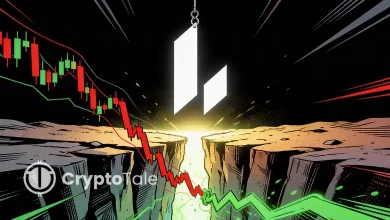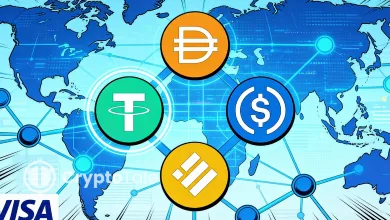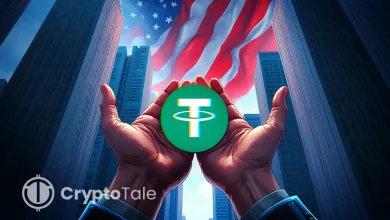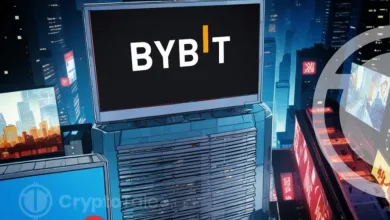Nubank Tests Stablecoin Payments via Credit Cards in Brazil

- Nubank to test dollar-backed stablecoin payments through credit cards, starting in Brazil.
- Brazil’s Central Bank reports 90% of national crypto transactions involve stablecoins.
- Argentina, Venezuela, and Bolivia show fast growth in regional stablecoin adoption.
Nubank, Latin America’s largest digital bank, is preparing to integrate stablecoin payments through its credit card network in Brazil. The disclosure was made on Wednesday at the Meridian 2025 event by vice chairman Roberto Campos Neto, a former Central Bank governor. The initiative seeks to merge blockchain-based assets with banking, allowing customers to pay with dollar-pegged stablecoins.
Integrating Blockchain With Traditional Banking
Campos Neto confirmed that Nubank plans to test dollar-backed stablecoin transactions on credit cards. According to him, blockchain will act as the connecting layer between digital tokens and conventional financial services.
He explained that most stablecoin holders in Latin America currently purchase tokens mainly to protect savings rather than to transact. This behavior, however, is gradually changing as customers seek broader uses for their digital holdings.
Campos Neto stressed that tokenized deposits could be applied within credit systems, including serving as collateral for lending. The bank’s plan aligns with Brazil’s ongoing push to bring tokenized assets and blockchain infrastructure into the regulated financial system.
Stablecoin Adoption Across Latin America
The adoption of dollar-pegged stablecoins in Latin America has accelerated due to inflation, currency volatility, and limited access to foreign exchange. In February 2025, Brazil’s Central Bank president revealed that 90% of the country’s crypto activity involved stablecoins, noting the growing adoption of USDT and USDC among local consumers.
Argentina has also seen notable expansion. According to a March 2025 Bitso report, USDT accounted for 50% of all crypto purchases in 2024, while USDC had 22%. In Venezuela, inflation reached 229% in May 2025. Chainalysis reported that 47% of all transactions under $10,000 were conducted with stablecoins in 2024.
Other regional governments are moving in similar directions. Bolivia lifted its crypto ban in June 2024 and later signed an agreement with El Salvador in July 2025 to promote Bitcoin and stablecoins. The Bolivian central bank now supports digital assets as part of its financial assets, expanding their use in daily payments.
Related: El Salvador’s Bitcoin Journey: From Legal Tender to Daily BTC Buys
Nubank Digital Asset Integration
Founded in São Paulo in 2013, Nubank has steadily expanded its role in digital finance. The company debuted crypto in 2022 by allocating 1% of its net assets to Bitcoin while also rolling out crypto trading services.
In March 2025, it added Cardano, Cosmos, Near Protocol, and Algorand to its platform, broadening customer access to alternative tokens. The stablecoin credit card test is the bank’s next step in connecting blockchain with its vast financial market.
Campos Neto emphasized that banks must adapt to these new forms of value or risk falling behind. He acknowledged challenges such as regulatory compliance, tax considerations, and liquidity risks in credit settlements involving stablecoins.
Nubank’s pilot will determine which stablecoins will be used and whether the program expands beyond Brazil into Mexico and Colombia. The outcome will also depend on regulatory responses and how consumers adapt to using stablecoins for daily credit card payments rather than only as a savings tool.
Moreover, Nubank’s decision to test stablecoin payments through its credit cards shows the growing adoption of blockchain and traditional banking in Latin America. The initiative indicates changing consumer demand, regulatory experimentation, and the regional importance of stablecoins as alternatives to volatile local currencies. If successful, the project could redefine how banks in the region approach digital assets and everyday transactions.




